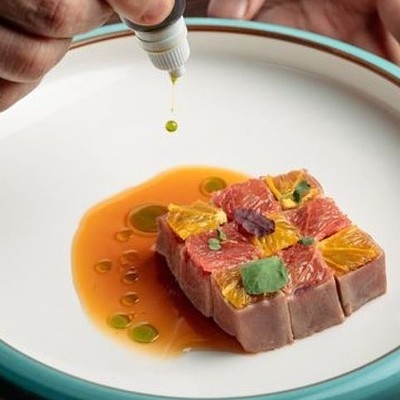Most people know there was a time when beer was safer to drink than water. Fewer know what beer tasted like when that was true.
Alan Ward, brewmaster of Pasadena-based Brigadoon Brewery, is working to change that, striving for historical accuracy in several 15th- or 16th-century ales. And in Ward's case, striving for accuracy doesn't mean glancing through some Wikipedia pages. He traveled to Edinburgh, Scotland, and read through the king's tax records, reverse engineering his ingredients from the manifests.
Ward and helpers brew 20 gallons of traditional brew each weekend at the Texas Renaissance Festival, giving all of it away in two-ounce samples. We tried the English and Scottish ales at his booth, No. 150, last weekend, and found both worth the stop.
The ingredients for Ward's Renaissance beers are the same as modern beers: water, barley, yeast and hops, with some rolled oats in the English ale. The brews are similar, but the Scottish variety has a dose of darker roasted barley, as well, giving it a nice orange glow and a richer feel.
Fitting the period also means that the bitter hops are only lightly added, as beers weren't "fully hopped" in Britain until the 16th century, Ward says -- heather was still often used to bitter the drink. Hops became widely used not just for their flavor but also because they acted as preservatives (thus the bitter India Pale Ale, which the Brits developed to survive the journey to south Asia).
Again period-accurate, there's very little bite to Ward's beers (the sharp carbonation common today would have blown the lids off the wooden storage casks), and they're room temperature, but neither detracts from a pleasant drink.
The brews smell sweet, not much like a modern beer. During the Renaissance, Ward says, only the Germans (who lived in a climate where hops did and do flourish) were experimenting with "finishing hops," adding a dose near the end of the process to lend aroma to the batch.
We've always been partial to the richer, darker tint of Scottish ales, made so historically by the Scots' struggles to grow hops in the Highlands. Ward's version is the stronger of the two samples here.
But the key, he says, to each version is its yeast, (Edinburgh or English Ale here, varieties now raised in laboratories). Nature's party animal, to put it crassly, eats the sugar, farts carbonation and craps alcohol. Beer is born, in the 1400s as in the 2000s.





